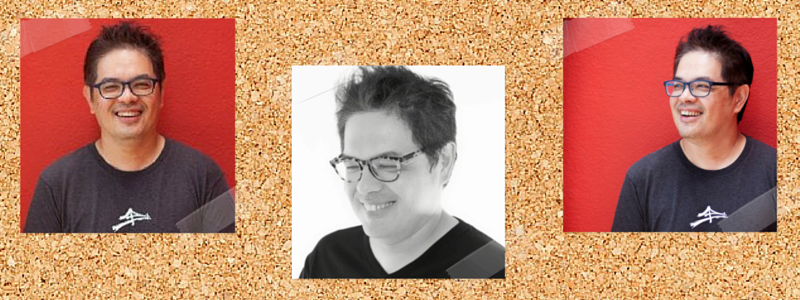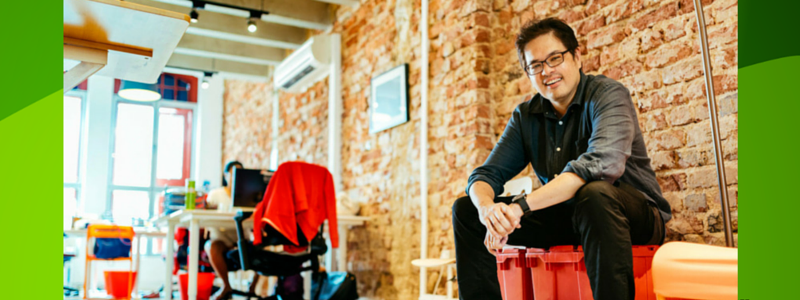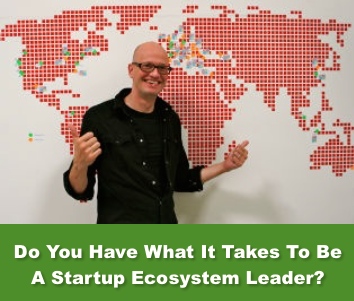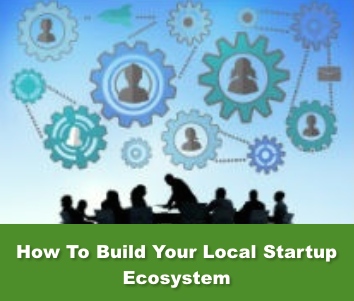
Startup leaders are the driving force behind the entrepreneurial culture in every city. They develop new initiatives to inspire entrepreneurship and provide guidance to the exhilarating startup madness. Without startup leaders to organize structure with the various ecosystem components, entrepreneurship would not be able to thrive in a city.
For this reason, The Founder Institute has gathered our expansive network of global directors to share their valuable insights into each of their specific startup ecosystems. In this installment of Director’s Chair, we’ve asked FI Singapore Director, Jeffrey Paine, to share his thoughts on Singapore's developing startup community.
How has your entrepreneurial background prepared you to lead a startup ecosystem like Singapore?
I started off consulting startups and doing various consulting services, typically market-entry, who were interested in entering into China and the US markets. My first job in the US was with KPMG. I was in a few VCs, MPH bookstore, and Cutler Ventures as well.
My experience in the US made me more comfortable with dealing with Americans and American companies. I got a good understanding of what the American company culture was like. In contrast, I learned how the Chinese did business in Shanghai too. All of these experiences gave me great insights into each of those cultures and startup ecosystems.

There's a lot of great talent in Singapore, what started & established Singapore to be one of the leading startup ecosystems around the world?
The ease of doing business and doing regulations. The government did a good job establishing this, which made it easy to start a business. The bankruptcy laws here are not as onerous. You aren’t personally liable if your company fails. The risk of starting a company and the risk of failing is a lot lower here.
The government has created initiatives and incentives to help small to medium size enterprises (SMEs) and subsequently the technology industry as a whole. The assistance of high growth tech companies are great in Singapore. In addition, taxes are lower so many people have moved here to set up funds because of that, as it’s an important factor for many businesses.
How do you see the startup community in Singapore evolving in the next 20 years? What will change and stay the same?
I think there will be more engineers starting more companies in the next 20 years. In addition, there will be less copycats on business ideas. Engineers tend not to copy people and be more innovative. The tech industry in Singapore has focused its efforts into creating training programs that support our engineers. In 10 years, I see more Singapore engineers taking more initiatives to become startup founders. They will figure out new business ideas that involve tech, and will travel the world to learn different tactics on building a tech company from different cultures.
The Ministry of Manpower and Ministry of Education (MOM) has a huge influence on our startup ecosystem in Singapore. If MOM relaxes restrictions on foreign talent just by the sheer percentage, there will probably be more foreigners starting companies. Depending on how the education system evolves, we could see more or less founders. Schools need to encourage parents to support their kids in choosing entrepreneurship as a career choice.
The education system needs to change a bit, as it needs to recognize entrepreneurship as a potential career path.”
Tweet This! @jpaine - Jeffrey Paine, FI Singapore Director
My biggest worry is that the teachers don’t change in next 20 years. The number one reason we do not have as many founders in Singapore is because it’s too structured. Kids who are anti-establishment and rebellious tend to be more curious and question the structure of things, which isn’t a bad thing. However, our education system prohibits them from challenging the current structure. What they don’t understand is that these kids could potentially be future entrepreneurs.
What short- and long-term strategies will attract entrepreneurs and start-ups to stay in Singapore?
Some short-term strategies include: making the startup visa process as easy as possible, the ease of hiring people locally and from overseas. In addition, having a special green lane for certain industries, eg. software, hardware, and electrical engineering. In terms of long-term strategies, as of now I see keeping overall living costs low in the future.

Given the current state of your local economy, what obstacles or challenges do you currently face in your startup ecosystem?
- Talent: As companies start to grow, depending on the type of company you are, it is expensive to get great talent. The only way is to be able to know how to hire and manage remote teams. Whereas for some other countries, the whole team can be in one location. In Singapore, it is hard to hire 100-200 engineers.
- Markets: Many entrepreneurs ask themselves if they should launch in the US and stay? Should they launch in developed countries only or developing countries? What’s the process of working in another country? The entire founder-market-fit is very tricky because it is fragmented. Choosing what to do, choosing where to be based, choosing where to start can be challenging for any founder. Singapore entrepreneurs are constantly distracted with these decisions.
Why do you feel it's rewarding to be an FI Director?
It’s more fundamental than an accelerator, as it’s a very different stage of someone’s life when they just left a job. It’s before they have formed a team and everything, and getting to that stage is a long and hard road. The opportunity to help guide them on this road is very interesting and rewarding to me.
It is extremely gratifying to see founders find their “mission” and start a business by solving a particular problem and work endlessly to make it happen. Some succeed, some fail and many return to their jobs, some even bounce back stronger than ever. There are indeed 2 types of people in the world, founders and everybody else. It is a great journey and a great fight.
What is the best piece of advice you've received about mentoring entrepreneurs?
Why do you want to do this? Why I am doing this? Why is this worthwhile doing? If entrepreneurs know why, then it shapes them into a certain type of founder.”
Tweet This! @jpaine - Jeffrey Paine, FI Singapore Director
If the why is compelling, these people will not give up easily. It is easy for them to raise money, hire great people, and solve the why. It’s important to constantly focus on the general mission and vision of your company. There will be many distractions along the way but never lose sight of your mission. Focus is how you prioritize your day and what you do at any given time. A lot of founders in the beginning get lost and aren't sure what to do first, and don't know what is important. Focus on the things you are good at and delegate the rest to someone else.


